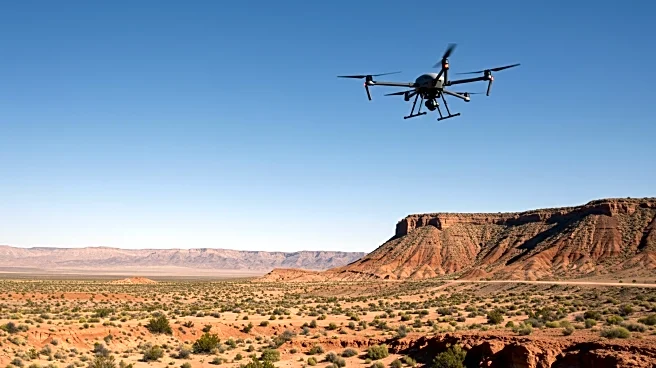What's Happening?
Mexico's President Claudia Sheinbaum has refuted claims by the U.S. Drug Enforcement Administration (DEA) regarding a new collaborative initiative called 'Project Portero'. The DEA had announced this initiative as a major effort to target smuggling routes across the U.S.-Mexico border. Sheinbaum clarified that no agreement exists between Mexico and the DEA, despite the agency's statement. The DEA had mentioned a workshop in Texas attended by Mexican police, which Sheinbaum acknowledged but insisted it was not part of any formal agreement. This development comes amid ongoing efforts to improve security relations between the two countries, following tensions during the previous administration.
Why It's Important?
The disagreement highlights ongoing complexities in U.S.-Mexico security cooperation, particularly in combating drug trafficking. The lack of a formal agreement could impact the effectiveness of cross-border operations aimed at curbing illicit activities. This situation underscores the challenges in achieving mutual trust and coordination between the two nations, which are crucial for addressing shared security concerns. The outcome of this disagreement may influence future diplomatic and security negotiations, affecting stakeholders such as law enforcement agencies and policymakers in both countries.
What's Next?
Mexico and the U.S. are reportedly working on a broader security agreement, which could redefine the terms of cooperation. This agreement is expected to focus on principles like sovereignty and mutual respect. The resolution of this issue may lead to more structured and effective collaboration in tackling border security challenges. Stakeholders, including political leaders and security agencies, will likely continue discussions to finalize this agreement, aiming to enhance bilateral relations and address mutual security threats.










